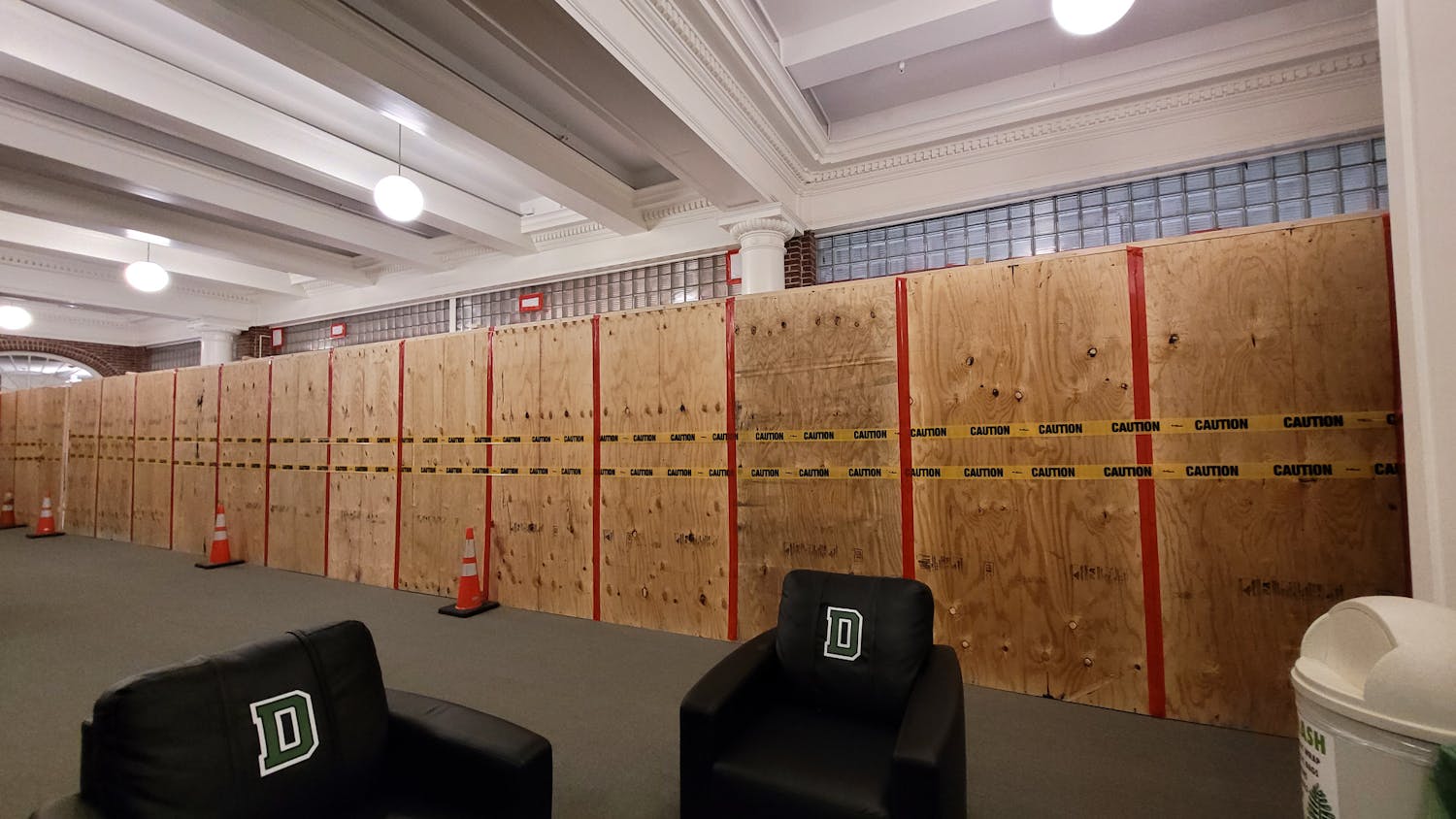As fiery Capitol Hill debates over the possibility of U.S.-initiated war in Iraq continue to intensify, Sen. John E. Sununu, R-N.H., addressed a substantially less-politicized issue in a speech yesterday evening in 105 Dartmouth Hall: furniture selection.
The newly-minted senator discussed the history of the hallowed Senate chamber desks as just one aspect of his transition from the House of Representatives to the Senate.
In a deliberate manner characteristic of an academic lecture, Sununu also noted other differences in rules, behavior and pace between the two legislative bodies to a relaxed, mostly-full auditorium of students.
Only after a change in venue -- a question-and-answer session at Sigma Alpha Epsilon fraternity followed -- did Sununu speak on current political issues.
On the contentious subject of war with Iraq, the senator said that the possibility that the United Nations will not approve an invasion to remove Saddam Hussein from power should not restrict the United States' actions.
"In a week or so, if the Security Council isn't going to act in a clear way to enforce their own resolution, then the United States is going to work with our coalition partners to enforce the resolution," he said in an interview with The Dartmouth.
Hussein's history of torture use on Iraqi citizens, his invasion of Kuwait and Iran and his buildup of weapons of mass destruction all confer his status as an imminent danger to the United States, Sununu said.
"[Hussein] is probably the greatest threat to our national security today, and he will remain so for the foreseeable future," he added.
Sununu referred to U.S. support overseas for an invasion and regime change in Iraq during the question-and-answer period, calling German Chancellor Gerhard Schroeder's decision to oppose war "a deliberate political move."
In Great Britain, where Prime Minister Tony Blair has aligned with the United States on Iraq, over 500,000 demonstrators protested for peace in London on Saturday.
Sununu also indicated that the half-dozen countries in the Arab world who have warned Hussein of the likelihood of U.S. military action -- Syria and Jordan are on the list -- would not oppose a U.S.-led strike.
This broad support in the world for Hussein's removal, Sununu said, means that even if the United States invades Iraq without gaining the Security Council's support, "we won't be going at it alone."
Massachusetts Democrat Sen. Edward Kennedy's request for a second bipartisan resolution for war is superfluous, Sununu said, as the Senate has already proven itself in past votes to overwhelmingly approve of Bush's policy.
One member of the 40-person audience also grilled Sununu about the effects of the Patriot Act, passed by Congress last year in a move to deter terrorist activity, on individual civil liberties.
While the passed version of the law is a marked improvement on earlier versions debated in Congress, Sununu said, certain aspects of the Act will hopefully be revisited in the future.
Sununu defended clauses in the Act that keep the names of persons imprisoned on terrorism-related charges secret.
"I don't think the federal government has an obligation to publish the names of people who are held, provided that the families of those individuals get information about the nature of the charge and the reason why they are being detained," he said.
Sununu also told the Dartmouth that he approves of Bush's well-publicized statements against affirmative action policies in use at the University of Michigan.
"I think it's wrong to judge a person or discriminate against a person on the basis of the color of their skin -- always," he said.
Last night's events were a part of SAE's Andrew J. Scarlett lectureship series.



